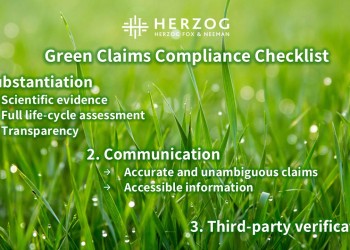Client Update | Policy for the Employment of Foreign Workers in Unique Technological and Automation Roles
2 July 2017
We would like to draw your attention to a new policy regarding the employment of foreign workers in unique technological and automation roles (not including expert employees paid expert rates).
The policy is aimed at regulating the procedure for the submission of applications for receipt of permits for foreign workers in this field and the manner in which the applications are reviewed by the inter-departmental advisory committee.
According to the policy, a company that is interested in employing foreign workers in a project involving unique technologies and automation not located in Israel and which can only be performed by foreign parties, is required to submit a written application for the receipt of an employment permit under Section 1M of the Foreign Worker Law, which will be referred to the Coordinator of the Inter-Departmental Advisory Committee for Special Projects.
The application is to be submitted at least 6 months prior to the start of the commencement of the project in order to enable a professional discussion to be held by the inter-departmental advisory committee, carrying out the professional inspections, formulating positions as well as allowing for a reasonable amount of time for the authorisation of recommendations by the “Commissioner” and the relevant ministers.
The policy states that applications submitted less than 6 months prior only allow for a short period for the making of decisions and do not allow for the holding of a proper and orderly inspection process of the application as required by their positions and authorities. Notwithstanding that, the policy does not state that applications received less than 6 months in advance will not be reviewed at all.
The application shall include a list of documents detailed in the policy (only originals) which are primarily detailed and reasoned explanatory letters, support by a declaration of the company’s CEO referring to the manner of the work, the unique technology and automation through which the project is being carried out; a list of the positions which will be held by the foreign workers; the number of workers required in each role; a foreseen timeline including a table of the necessary manpower for carrying out the project at each stage; a detail of the number of Israelis employed in the project; a detail of whether the company intends on integrating and training the Israeli workers in carrying out the work that requires the unique technology being carried out with the project.
As a general rule, the review of the application is done in a number of stages. Firstly, the application is transferred to the inter-departmental committee which provides its written recommendation to the Commissioner including its impressions of the uniqueness of the technology and automation needed for carrying out the project.
In the event that the committee approves of the application, it shall be transferred to the Commissioner of Foreign Workers, the commissioner transfers their written authorisation to the Finance Minister and the Minister of Labour, Welfare and Social Services for the receipt of their consent. After receiving the ministerial approvals, the company shall receive an in-principle notice of the authorisation of the grant of an employment permit in which the terms of the permit shall be detailed as set by the Commissioner, as well as the accumulative conditions precedent needed for the validity of the permit, including: (a) details of the company supervisor; (b) payment of a fee; and (c) the deposit of a bank guarantee (whose amount shall generally be the sum of NIS 15,000 multiplied by the maximum number of foreign workers approved by the permit) set at the discretion of the committee. The guarantee shall be valid for a period concluding 6 months after the expiration of the permit.
After the company has fulfilled these conditions, the permit will be issued, which will include the maximum allowable quota of workers, the period of the permit and its terms. Once a permit is given, the applicant is required to apply to the office of the relevant Population Administration for the submission of an application for the receipt of a B/1 work visa.
It should be pointed out that the population authority is likely to refuse the application for different reasons, for example if the invited party has illegally entered Israel or had their entry denied in the past or unlawfully resided in Israel, etc.
The extension of the validity of the foreign worker’s permit whose entry to Israel was approved under this policy, shall be done in accordance with the regular policies applicable to the extension of B/1 permits, subject to the validity of the permit provided to the company.
We will continue to monitor this matter and keep you updated with further developments.
As always, we are happy to assist with all matters as well as any of the items brought in this client update.





